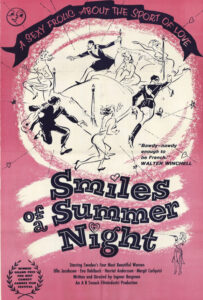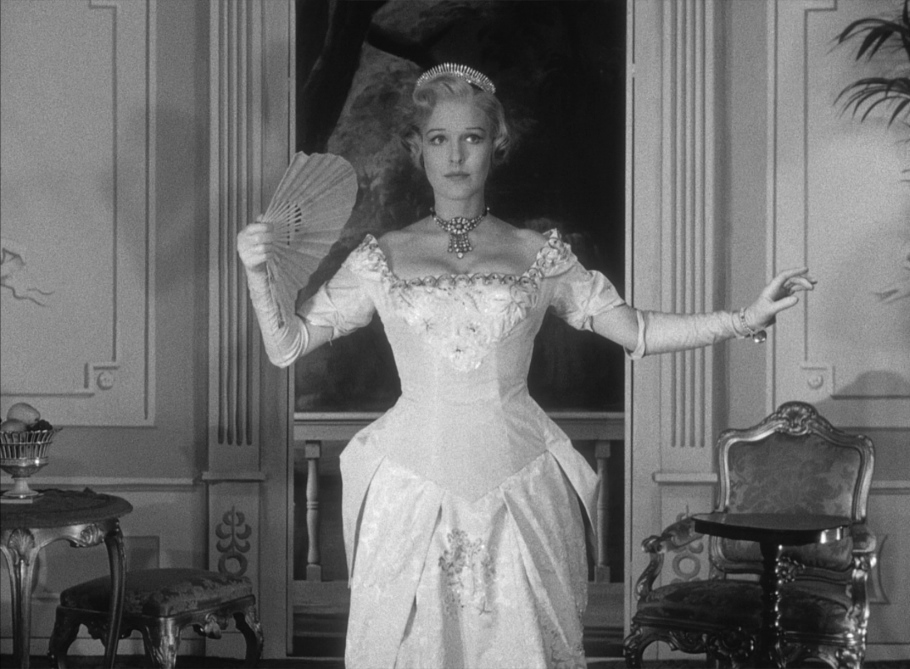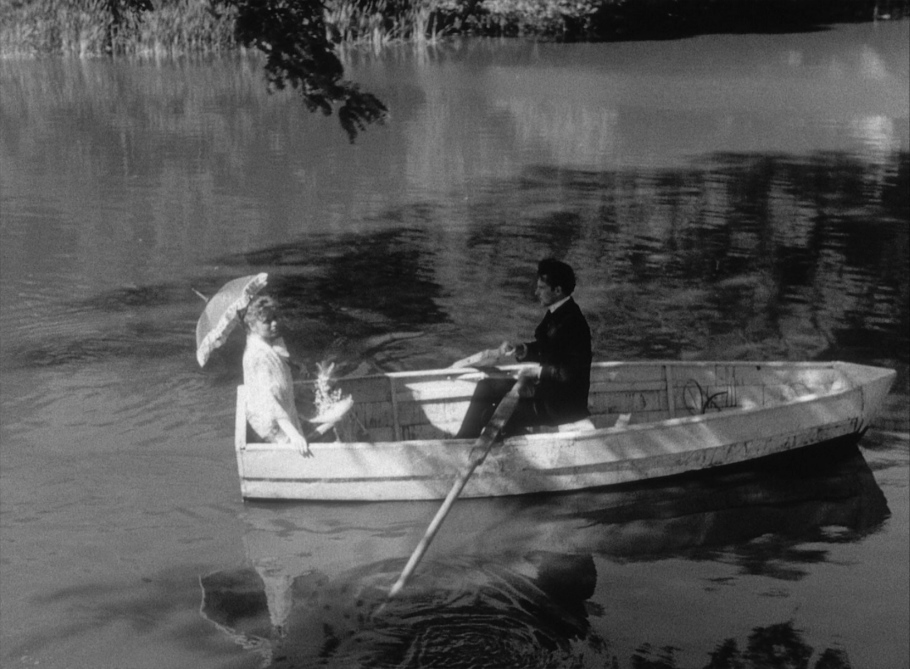|

Synopsis:
When a middle-aged lawyer (Gunnar Bjornstrand) married to a virginal teen (Ulla Jacobssen) pays a visit to his long-time mistress (Eva Dahlbeck), he encounters her most recent lover (Jarl Kulle), who jealously proposes a duel; meanwhile, Bjornstrand’s grown son (Bjorn Bjelvenstam) harbors a secret crush on Jacobssen, while Kulle’s neglected wife (Margit Carlquist) is determined to win her husband back.
|
|
Genres, Themes, Actors, and Directors:
- Historical Drama
- Ingmar Bergman Films
- Love Triangle
- Romantic Comedy
- Scandinavian Films
Response to Peary’s Review:
Peary writes that he views this “sophisticated bedroom farce” — “one of Ingmar Bergman’s most popular films” — “as a tribute… to those women who are clever and brave enough to shape their own worlds despite husbands and lovers who make up the rules.” He notes that while the “film has been compared to Lubitsch’s comedies of manners and Renoir’s Rules of the Game,” he is “more reminded of the works of Max Ophuls, whose men are ruled by pride and whose women are so guided by their hearts that they become obsessed with winning men who they realize aren’t worthy of them”. Indeed, the male characters in SOASN are so clearly “no prizes” that one can easily see why Scandinavian countries eventually became world leaders in feminist equality (!); the women here are, without exception, the ones with firm heads on their shoulders. Peary points out that while the “film is wise and cynical”, you’ll “also think it hilarious if you… pay attention to the indignities Bjornstrand suffers”, such as “fall[ing] headlong into a puddle”; being forced (by Dahlbeck) to “wear a ridiculous nightshirt, cap, and gown”; being unable to “get Dahlbeck to admit that her son, who has his first name, is his child”; etc. The film’s “excellent acting, [fine] photography (by Gunnar Fischer), [and] set design (by P.A. Lundgren)” all contribute towards the enjoyment of this early Bergman masterpiece.
Redeeming Qualities and Moments:
- Fine performances by the entire cast

- Gunnar Fischer’s cinematography

- Bergman’s clever, deceptively lighthearted screenplay

Must See?
Yes, as a classic of Scandinavian cinema.
Categories
- Genuine Classic
- Important Director
(Listed in 1001 Movies You Must See Before You Die)
Links:
|




One thought on “Smiles of a Summer Night (1955)”
A no-brainer must, and a delight to visit this again after a long time! It certainly holds up well on a return viewing.
I’m not sure when I first saw this film. As a teenager, I was a Bergman fanatic in particular – and made sure to see anything he did, any opportunity that I had. I was a somber yet cynical and feisty teen, so it made perfect sense to me that Bergman had this comedy mixed in with his usual fare. I think I read somewhere that Bergman wrote the script almost on a dare – as though people suspected his generally dark nature would be at odds with writing a sparkling comedy.
Not that ‘Smiles’ is sparkling…per se. It’s very amusing throughout but it is rooted in deep feeling and intense emotion (perhaps no more so than when the countess Charlotte is talking about how she loathes her husband, yet is desperately in love with him; even the music here turns sinister…as it will once or twice later).
What I think I like most about the structure of the film is that the audience more or less knows early on who will end up with whom as lovers at the end – and the film is then the progression of how they all get there. So there are no real surprises, really, yet it remains fascinating watching how the film’s four couples resolve their pairings.
It’s simply a charming and very wise film, filled with wonderful sentiment about the agonies and the joys of love.
On the Criterion DVD, there is an interview with Bergman – in which he reveals that he did not even know that his film had been submitted for consideration at the Cannes Film Festival…where it was awarded a ‘Best Poetic Humor’ (what?!) award. He also says that ‘Smiles’ was almost immediately successful worldwide and was the film which turned his career completely around and afforded him artistic freedom from that point on.
As a side note: when I was about 18, this film appeared on Broadway as Stephen Sondheim’s ‘A Little Night Music’. When the Tony Awards were broadcast that year, ‘ALNM’ was (as I recall) sweeping statues considerably. I ran to the phone to talk to a high school chum whose father worked in New York City (and returned home on weekends). I asked my chum, ‘Have you heard of this musical?’ I don’t think she had. I believe I asked, “Do you think your dad can get tickets when he’s in the city?’ …Before I knew it, we had the tickets and we went. The musical was a revelation as a film adaptation – just a gorgeous event to see! One thing I recall: when the set changed and evolved to the dinner scene, with the looong table for all of the dinner guests to surround it…the audience gasped, it was so gloriously done. I don’t often recall hearing an audience actually gasp. But gasp they did. 😉